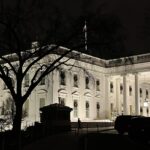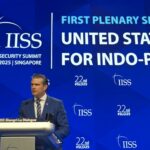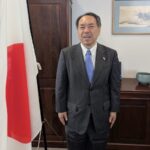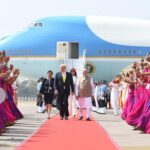There are some folks who have started believing that the downside in United States-India relations has begun and worse days are ahead. Others still are of the view that the two countries have seen the ups and downs of a relationship and that each understands the centrality of the other in the emerging scheme of things, regionally and globally.
And there is a third group who genuinely believe that this is the time to take a deep breath, reflect, and not feel compelled to respond to every statement in a tit-for-tat mode. After all, politicians, bureaucrats, and “unnamed” officials are bound to say things, if only to add to the steamy environment.
This is perhaps a moment for reflection, not just on India-United States relations but the manner in which America’s allies in Asia are looking at the second Trump administration. This is especially the case with Japan, which has been seeing its relations with its top ally go up and down in just a matter of months, not just confined to trade and tariffs but also on the issue of defense spending. Washington has been seeing a resurgent Tokyo slowly upping the ante on defense, with successive governments going against domestic sentiments. Still, there is a Washington compulsion to want Japan to be on a par with European allies on a 5 percent of GDP spending on defense.
And, much to the surprise and dismay in parts of Asia, there is a slow but steady rise in the way conservative Japanese have started looking at “robust” military posturing and nuclear deterrence—and that too in a country that was ravaged by atomic bombs in 1945. For a country that renounced war through an imposed “peace constitution” by the United States in return for a guaranteed protection should it come under attack, Japan is now openly debating military posturing and strategies. More importantly, if Article 9 of the constitution—which prohibited offensive capabilities—should be amended. What was at one time confined to right-wing political entities, altering the constitution now has support from sections of the ruling Liberal Democratic Party.
It is not just the Trump administration piling on Japan as a “freeloader” or taking American taxpayers for a ride on matters pertaining to its security through an over-reliance on American power. Over a period of time, Japan has been seeing the threat environment rapidly rising in East Asia—from China, North Korea, and Russia. On the one hand, Japan has to contend with three nuclear powers in an area that is seeing heightened tensions; and on the other, there are territorial issues as well.
Tokyo’s disputes with Beijing and Moscow are well known; but Japan and South Korea have historically squared off on a group of islets in the Sea of Japan, the Dokdo/Takeshima as they are referred to in the two countries. And, not to be left out, North Korea lays a claim on them as well. At a Group of Seven meeting in Hiroshima in 2023, the then Prime Minister of Japan, Fumio Kishida, stunned a domestic and global audience by supporting a statement that nuclear deterrence might bring a peace of its own kind.
The Asian security environment does not stop with the larger picture of like-minded democracies trying to come to terms with a perceived belligerence of China in the Indo-Pacific or the Asia-Pacific. There are smaller but rising powers in that part of the world like Vietnam, Cambodia, Thailand, and the Philippines whose different agendas at times erupt into hostilities over the Spratlys or the border skirmishes that recently took place between Cambodia and Thailand.
The United States, which sees countries like India, Japan, and Australia as allies and long-term strategic partners, has also shown signs of irritation, anger, and retribution on issues of trade, as the world has just witnessed. At times, global issues like the humanitarian disaster in Gaza and support for Palestine throw another wrench, as is likely to happen. A drift between America and its partners in the Indo-Pacific also raises the question of the future of the QUAD, a quadrilateral cooperation mechanism involving the United States, India, Japan, and Australia.
The world undoubtedly waits with bated breath on the outcome of the August 15 Alaska summit between Presidents Donald Trump and Vladimir Putin, with or without the presence of the leader of Ukraine, Volodymyr Zelensky. The critical component is undoubtedly the ongoing Russia-Ukraine conflict: first for a ceasefire and the terms of ending the conflict.
The optimists would make the point that a positive outcome will have a bearing on the sanctions against Russia, which will then set the tone for a rethink on the proposed secondary sanctions that President Trump has imposed on countries like India for buying Russian oil. Even the first steps to lowering global tensions will be seen as a winner.
Disclaimer: The opinions and views expressed in this article/column are those of the author(s) and do not necessarily reflect the views or positions of South Asian Herald.






